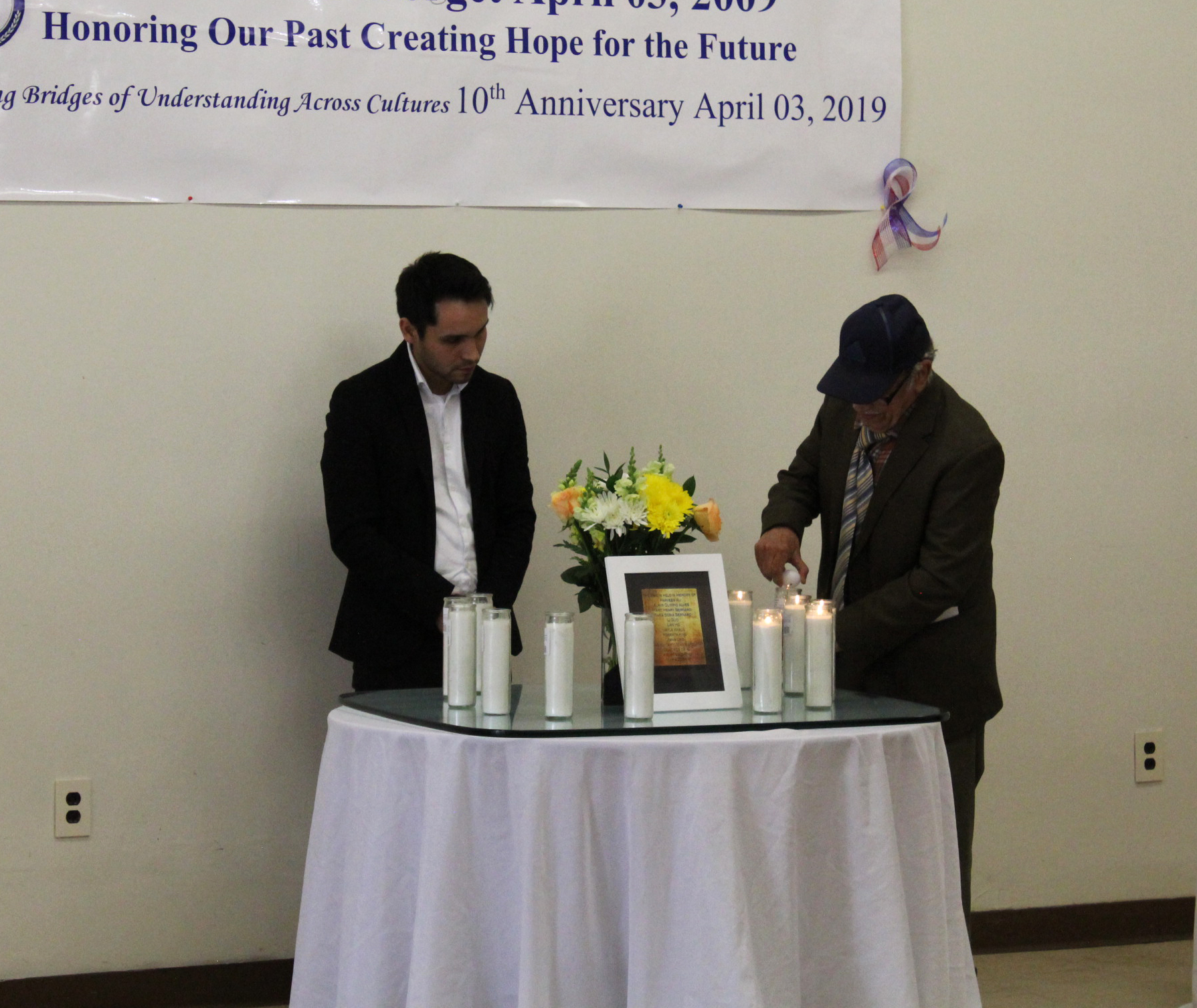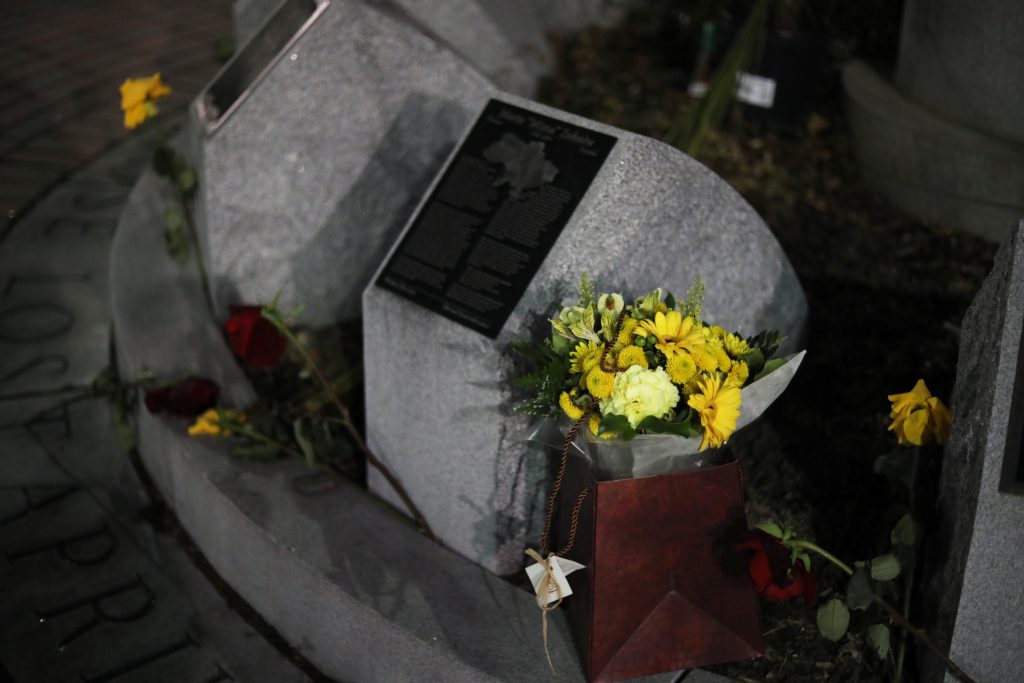On April 3, 2009, Jeffrey King’s life changed forever when his mother, Roberta King, was one of 13 killed in New York’s deadliest mass shooting at the American Civic Association (ACA) in Binghamton.
To commemorate the 10th anniversary of the shooting, King, along with other family members of the victims, spoke at the ACA on Wednesday to pay tribute to the victims.
“After 10 years, we remember our loved ones, families, friends and strangers who have suffered here and throughout the world with other tragedies,” King said. “For us to move on and live a full and productive life, we too can serve as an example. We can inspire others during their darkest moments.”
The ACA is a nonprofit that works with immigrants and refugees by providing citizenship assistance, assistance with asylum cases and English as a Second Language (ESL) classes among other initiatives and programs. Most of the victims of the shooting were immigrants attending an ESL class at the ACA that morning. The youngest, Jiang Ling, was 22.
The memorial began with opening remarks from Mayra Garcia, executive director of the ACA. Prior to the shooting, the ACA had helped some of Garcia’s family members gain citizenship through immigration services. Two months after the shooting, in June 2009, Garcia became an immigrant case consultant for the ACA.
During her remarks, Garcia said she understood the pain of those affected by the shooting and spoke on her goals for the association.
“I understand and understood the pain that you are suffering based on what happened here,” Garcia said. “I really wanted to find a way to focus on restructuring the building. I was focusing on making sure that the services that the community needed were available.”

Al-Salihi spoke about his wife’s love of learning and her dedication to her classes at the ACA. Additionally, Al-Salihi highlighted the issue of gun control in the United States and how easy it is for people to obtain firearms.
Following the remarks from affected family members, candles were lit in honor of the 13 individuals who lost their lives, and attendees were invited to light their own candles in honor of a loved one they may have lost.
The program also featured a vigil service where local faith leaders spoke about the impact of the shootings on the community and the healing process that followed. Reverend Arthur Suggs from the First Congregational Church in Binghamton, located next door to the ACA, spoke about his experience on the day of the shooting and how his perspective has changed over time.
“I no longer think about armed men on top of a church with rifles aimed at an organization such as American Civic Association,” Suggs said. “I think instead of those 1,000 and maybe 10,000 acts of kindness and compassion and love that followed.”
Imam Anas Shaikh from the Islamic Organization of the Southern Tier spoke about the pain that still lingers 10 years later.
“No matter how long goes by, it’s going to always be painful and traumatizing and we remember the victims, their parents, their mothers, their fathers, their children and their siblings,” Shaikh said.
Shaikh also discussed the fact that the ACA shooting is often left out of the national narrative when discussing gun violence.
“We may not get the same recognition as others such as Parkland, Sandy Hook and Orlando,” Shaikh said. “When we hear these cities’ names we immediately remember that there were shootings that happened in these cities, but when we hear Binghamton, this is not the case. For all of us here, we feel that we grieve this tragedy alone.”
However, King mentioned in his remarks that he finds the anonymity a relief.
“Over the years, I’ve come to realize that I am glad we’re not harshly labeled like the unfortunate cities: Columbine, Newtown, Parkland,” King said. “That would be a horrible thing to live with.”
Although it has been 10 years since the ACA shooting, for King, its memory still affects the city of Binghamton.
“Binghamton is now recognized as the forgotten mass shooting; however, locally, it is a different story,” King said. “To some, it may be a distant memory, but to those who were directly affected, including the people in this room, first responders, authorities, grief counselors and to the wounded who bear emotional and physical pain with every step, it is not forgotten.”



